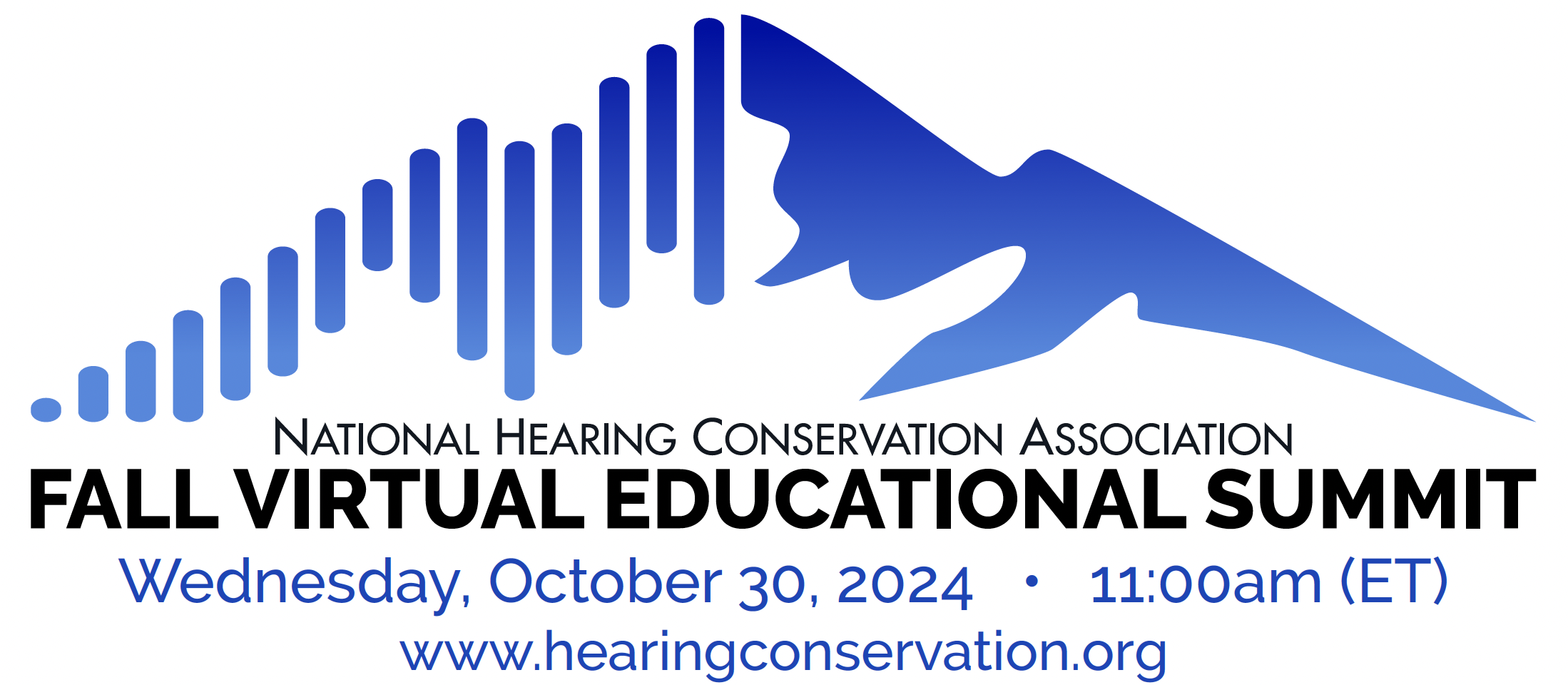|
NHCA Fall Virtual Educational Summit
Wednesday, October 30, 2024, 11:00 AM - 4:00 PM EDT
Category: NHCA Events
|
| Registration Type | Price |
| Member | $325 |
| Non-Member | $475 |
| Student | $20 |
| Non-Member Join & Go | $500 |
Special Offer for Non-Members
If you register for the Fall Virtual Educational Summit via Join and Go, you will also receive a year of NHCA Individual membership at a discounted rate. This is a one-time-only opportunity for non-members.
Register Now
Live Sessions
Click the session titles to read the full session descriptions and learning objectives!
11:00 AM ET - Welcome & Introductions
Elizabeth Masterson, NHCA President
11:05 AM ET - Keynote Session
From Evidence into Action - How Scientific Research on the Health Effects of Noise Can Influence Policy and Decision-Making
Speaker: Benjamin Fenech
12:10 PM ET
Drowning in Data: Opportunities and Challenges in Assessing Noise Exposure
Speaker: Benjamin Roberts
12:45 PM ET
Dangerous Decibels at 25: Where Are We Now?
Speaker: Billy Martin
1:15 PM ET - BREAK
1:35 PM ET
How Musicians Differ from Their Industrial Colleagues
Speaker: Marshall Chasin
2:10 PM ET
World Health Organization's Listen Safe Initiative
Speaker: Michael Santucci
2:45 PM ET
The International Commission on Biological Effects of Noise - An Overview
Speaker: Mathias Basner
3:20 PM ET
New Opportunities in Auditory Research: Innovative Approaches to Study Hearing Loss and Tinnitus
Speaker: Sharon Curhan
On Demand Sessions
Click the session titles to read the full session descriptions and learning objectives!
Understanding Noise Exposure and Hearing Loss in the U.S. Upstream Oil and Gas Extraction Industry
Speaker: Bradley King
Bridging Cultures: Mastering the Art of Cultural Competence
Speaker: Andy Merkley
Aircraft Noise Exposure and Cardiovascular Disease
Speaker: Junette Peters
Practical Tools for the Occupational Audiology
Speaker: Tamara Thompson
Maternal Occupational Exposure to Noise: Prevalence, Maternal Effects, and Infant Outcomes
Speaker: Kristen Van Buren
Continuing Education
This program is approved for .8 of ASHA CEUS.

The live sessions are approved for .4 CEU from AAA - these sessions are also available for .4 CEU on-demand

The on-demand sessions are approved for .4 CEU from AAA

Live and recorded sessions will be available for viewing for CEU credit in the NHCA Learning Center through Friday, November 22nd.

 Prev Month
Prev Month View Month
View Month Search
Search Go to Month
Go to Month Next Month
Next Month
 Export Event
Export Event